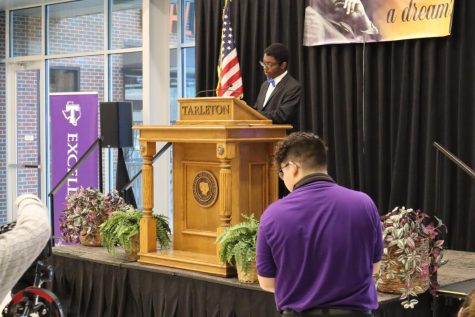History remains
In history, many heroes are rarely mentioned. A multitude of overlooked people do not get the recognition they deserve. This has happened with many Black historical figures in the past. Today, we are recognizing some people who have transformed the world for the better and deserve to be known.
Starting off, we have Claudette Colvin. On March 2, 1955, Colvin, 15 years old at the time, was returning home from school when she refused to move to the back of the bus and offer up her seat to a white woman. Due to Colvin’s resistance, she was imprisoned. Colvin was among the five plaintiffs for “Browder v. Gayle,” the very first federal lawsuit brought by a civil rights lawyer that contested bus segregation, which had been filed in June of 1956.
“All I remember is that I wasn’t going to get off the bus voluntarily,” Colvin said in an interview with NPR.
Next, we have Dr. Alexa Irene Canady. When Dr. Canady was appointed the first female and African American neurosurgeon in the United States in 1981, she demolished boundaries based on both gender and race.
“I made it to Minnesota for residency, and before I knew it, I was a neurosurgeon. I had achieved my dream. And that’s all it was to me because being the ‘first’ anything was never my goal,” Canady wrote in an essay for the University of Michigan.
There is also Gordon Parks. He is recognized for erasing the “color barrier” in photography. Parks co-founded Essence magazine, published 15 books, composed musical soundtracks, and debuted as a jazz musician. He was also a singer, writer, and filmmaker, along with being a photojournalist. He was a self-taught artist who served as “Life” magazine’s first African American photographer. Additionally, he was the first Black man to develop and create a significant motion picture, opening doors for other Black directors.
Another was James Armistead Layafette. In 1781, Armistead was just a slave in Virginia when he was permitted to contribute to the war effort by his owner, who supplied the Continental Army. He was sent out as a spy while assuming the identity of an escaped slave, and he enlisted in the British forces in Virginia. After gaining their confidence, Armistead moved back and forth among the camps of the armies, giving the British false intelligence while secretly surveilling and reporting their tactics. He was eventually freed in 1787 as a reward for his service to the country.
All of these people have had an enormous impact on society, changing life for millions. While there are so many more overlooked Black historians, it is about time for the many American heroes to receive the recognition they merit.




